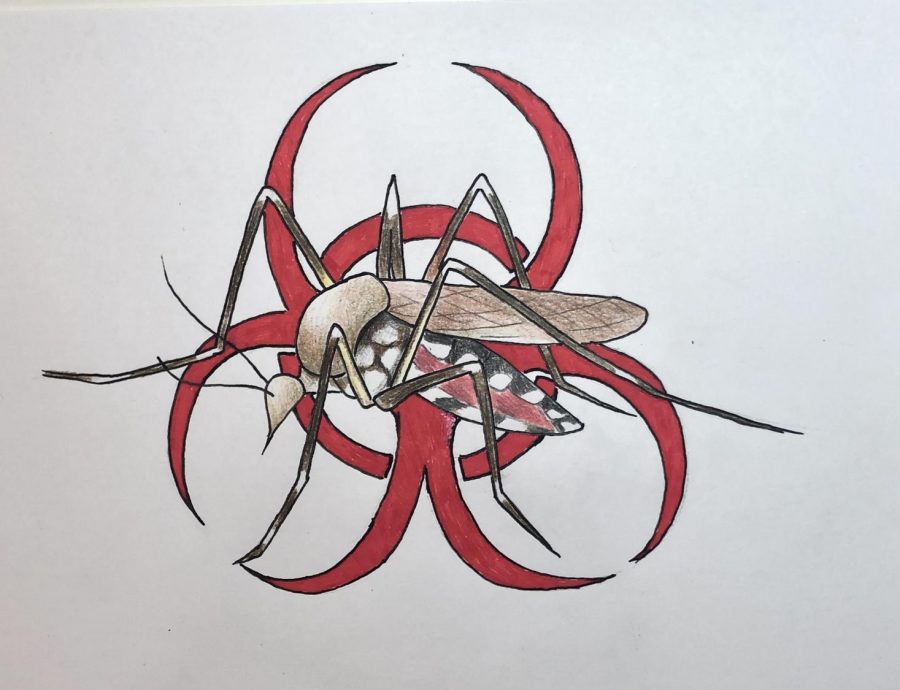Triple-E Outbreak in MA Leaves CRLS Athletes Worried
With Several Deaths from Mosquito-Borne Virus, Sports Teams Wonder About Precautions
November 7, 2019
With the Triple-E virus spreading, and cases continuing to be confirmed around Massachusetts, Cambridge Rindge and Latin students are becoming concerned for their health when they are competing in at-risk towns.
In 2019, Massachusetts has seen a tremendous spike in human cases of Triple-E. According to the Center for Disease Control and Prevention, from 2009-2018, there were ten total reported human cases in the state of Massachusetts. However, since July of 2019, the Massachusetts Department of Public Health confirmed that the number has risen to twelve.
Eastern Equine Encephalitis, or more commonly known as Triple-E is a rare virus typically passed through mosquitoes. The virus causes swelling of the brain, convulsions and even coma or death. Triple-E is fatal in approximately one in three cases, and those who survive are often left with permanent brain damage.
In September one of the cross country team meets in Lincoln Sudbury had to be postponed because there had recently been a confirmed case of the Triple-E virus in a five-year-old girl.
Keegan Harkavy ‘21 who runs track and field for CRLS and participates in orienteering for the U.S national team, says “only twelve in a state of millions have been infected, so I’m not super nervous. That being said, It’s always in the back of my mind especially since I compete a lot in the woods in towns where this virus has popped up.”
Mr. Cody, the head coach of the cross country team, shared a similar sentiment stating, “I am not too worried about this outbreak as of now, but if it continues to get worse and come closer to Cambridge we will begin to take precautions.” At the moment, bug spray is the number one way to protect athletes from possible infections.
Mr. McDonald teaches about viruses in his biology classes and from a medical standpoint says, “I am worried, I’m always worried… If we don’t have a plan and we don’t have stockpiles of the virus [to create vaccines from] we could be looking at an epidemic.”
He also partially credits the increase of Triple-E cases to last year’s warm winter and this warm fall, which has lengthened the mosquito season considerably.
As of now, the effect this bizarre outbreak is having on student athletes at Rindge is only a mental one. Mia Galante ’21, who plays for the girls varsity soccer team, says, “bug spray is the best way.” This is the right idea, and while the chances of being bitten by an infected mosquito are slim, it is important to be safe.
This piece also appears in our October 2019 print edition.










